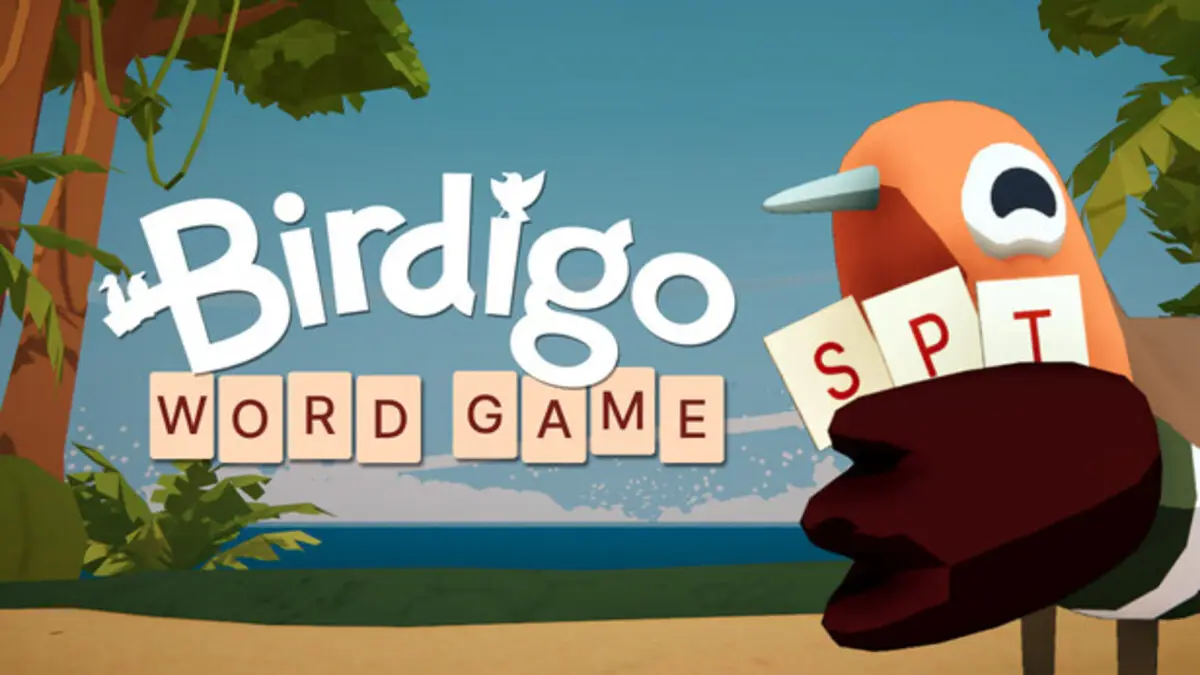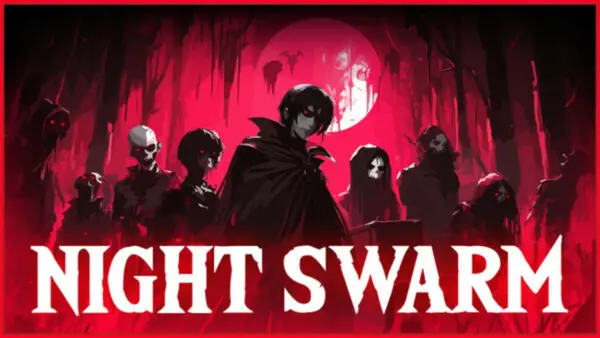What do you get when you cross the addictive wordplay of Wordle with the strategic deckbuilding of Balatro? You get Birdigo, a charming and surprisingly challenging word game about leading a flock of birds across their migration route. Created by screenwriter John August (Corpse Bride, Charlie’s Angels) and indie developer Corey Martin (Bonfire Peaks, Pipe Push Paradise), it blends clever word puzzles with roguelike strategy in a way that feels both fresh and familiar. This Birdigo review dives into why the game can be so rewarding, and why its randomness and difficulty spikes may ruffle a few feathers along the way.
Sights and Sounds
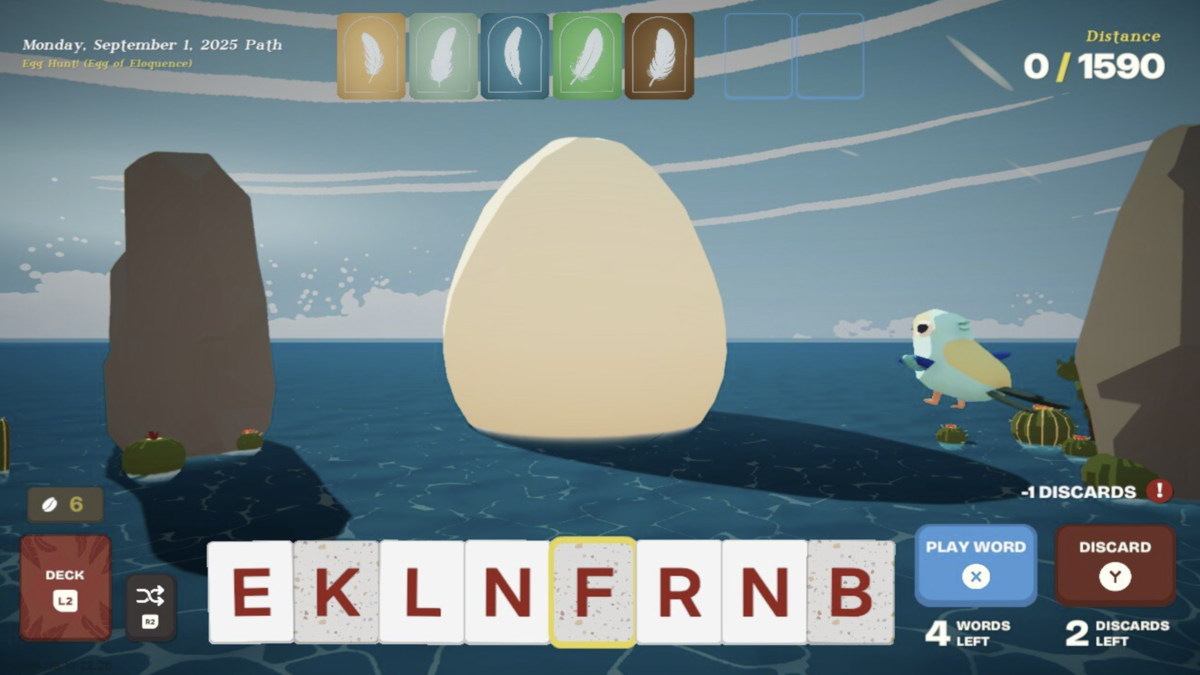
As someone who actually keeps society finches, Birdigo immediately won me over with its aesthetic. The little birds that bob and flutter in the background while you piece together words add a surprising amount of charm and personality, giving progress a sense of life that makes your journey far more engaging than a simple score counter ever could.
The music and sound effects set a calm, relaxing atmosphere that fits the tone of the game and never feel intrusive. It’s pleasant enough for long sessions, but not particularly memorable. After a while, I found myself lowering the volume and swapping in my own playlist or background TV instead. Functional and soothing, yes, but not something you’ll find yourself humming later.
Platforms and Controls
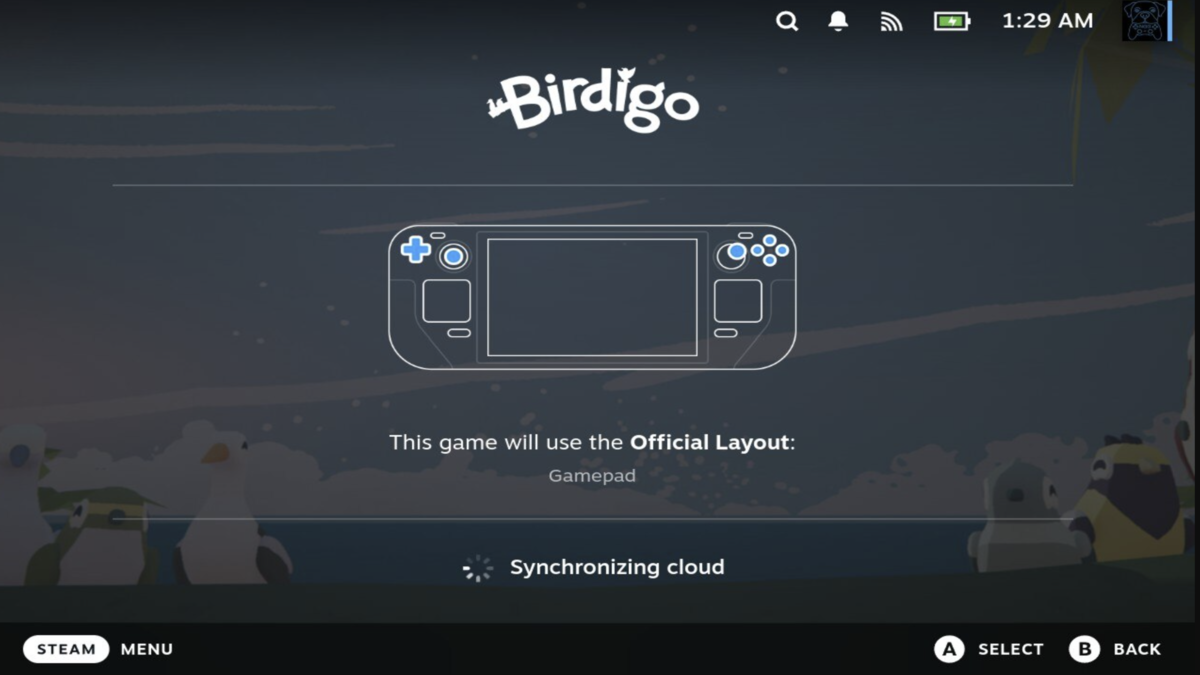
Birdigo works seamlessly across both PC and Steam Deck, which isn’t something I can say for every indie release. On PC, you can fully play the game using just your keyboard. Typing letters directly into your word feels natural, and keys like Tab and Enter double as shortcuts for discarding or submitting words, making the experience surprisingly fluid without ever needing to reach for the mouse. On Steam Deck, the official controller layout is tuned perfectly out of the box. Every prompt displays correctly, and I never had to remap anything. Whether you prefer handheld or traditional keyboard input, Birdigo has you covered.
Core Gameplay
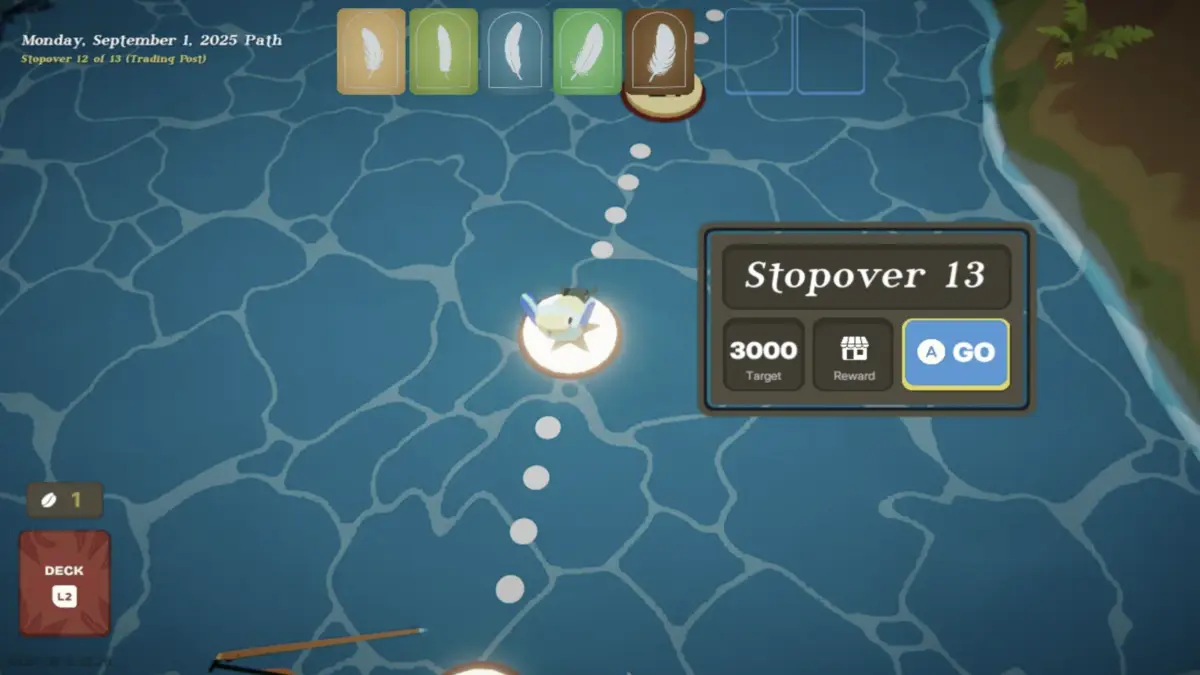
At its heart, Birdigo mixes deckbuilding mechanics with word-building strategy. You start with a small collection of letter cards and use them to form words. Each word translates into “flaps,” which push your flock further along its migration path. Longer words naturally score higher, but the real fun comes from chasing synergies by stacking feathers, special letter upgrades, and song effects to amplify your scoring potential.
For example, feathers might retroactively boost three-letter words, or notes might give bonus points for ending on a vowel. These mechanics layer together to create a surprisingly deep level of strategy. I loved slowly upgrading my deck, chasing rarer letters, and figuring out whether to lean into short, efficient words or gamble on building longer, flashier ones.
The Learning Curve
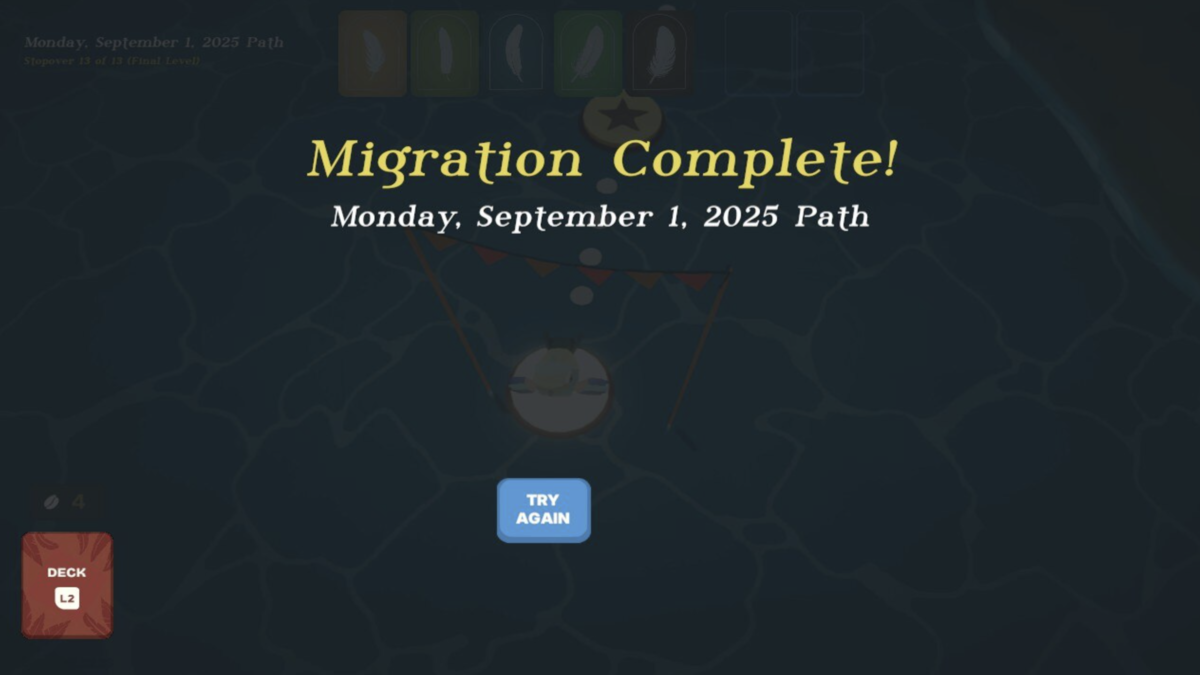
It took me several failed migrations before the mechanics really clicked. At first, it felt like I was just throwing letters together and hoping for the best. But once I realized how feathers, upgraded letters, and songs could stack into powerful combos, the strategy side of Birdigo opened up. That turning point is incredibly satisfying. Suddenly, you’re not just spelling words, you’re engineering point engines.
The downside is that this “a-ha” moment doesn’t happen immediately, and some players may get discouraged before reaching it. Birdigo asks for patience and experimentation, but once you push through that early wall, every successful run feels like a victory you earned through both vocabulary and smart deckbuilding.
Progression and Replayability

Beyond the main mechanics, Birdigo offers a total of six migrations to complete. Each migration feels distinct, but the small number means variety relies more on experimenting with different builds than on fresh levels. To mix things up, you can unlock six different decks by completing specific challenges. For example, the Pirate deck unlocks if you manage to spell a word with three “R”s in it. Each deck changes your starting pool of letters, which can alter your approach and keep runs interesting.
On top of that, Birdigo includes daily migrations that rotate every 24 hours. These challenges add a nice reason to check in regularly and give the game some extra replay value, especially for players who enjoy competing for high scores.
The Challenge (and the Frustrations)
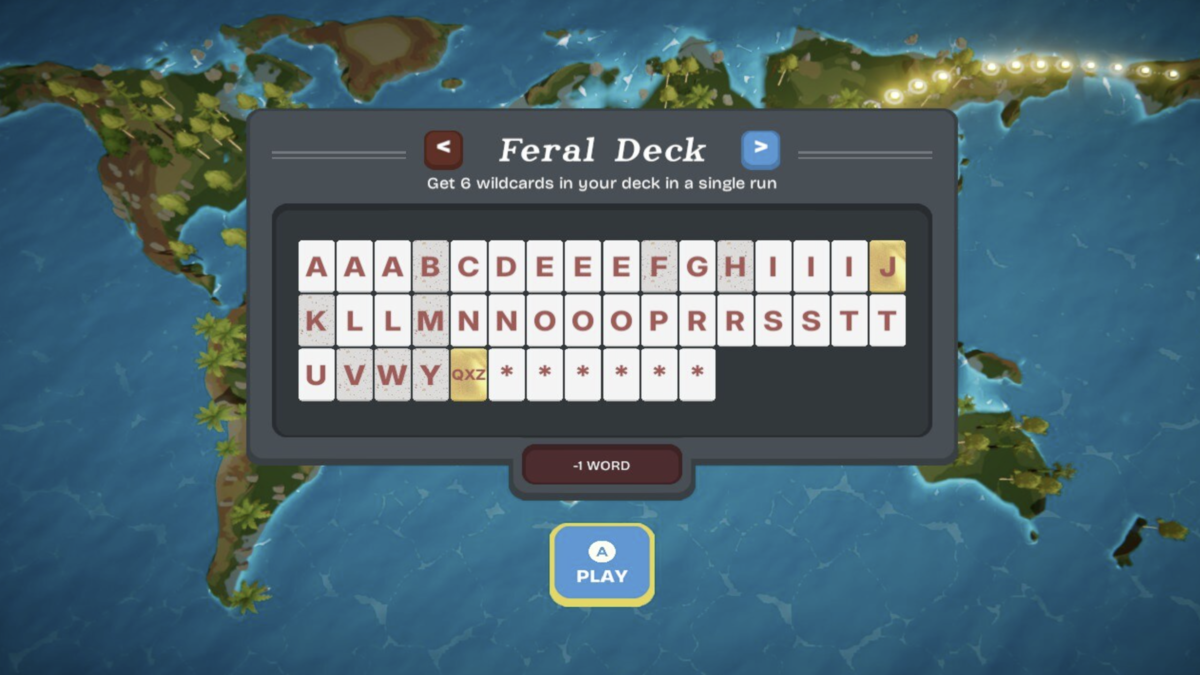
Here’s the catch: Birdigo leans heavily on RNG. The letters you draw, the feathers in the shop, and even the notes you pick up can make or break a run. Some attempts feel blessed, where every card falls into place, while others collapse before you hit the halfway mark. Because you only get one “life” per run, a streak of bad luck means restarting from scratch and rebuilding your deck all over again.
I often found myself tossing most of my letters just to chase higher-rarity pulls like platinum and gold, especially wildcards, since they felt essential for keeping my score competitive.
The difficulty spike only adds to the pressure. Later stages demand massive point totals, and with 30 levels in some migration patterns, the grind can be punishing. Losing progress after a single failed landing feels less like a challenge and more like a time sink, especially since you can’t carry forward or refine past builds. I get the sense the devs wanted to extend replayability, but it risks pushing away players who don’t have the patience for repeated restarts.
On top of that, the game often favors short three- and four-letter words. While there’s nothing wrong with rewarding efficiency, it feels restrictive if you want to stretch your vocabulary and spell something longer. Sometimes, crafting a clever word doesn’t feel as rewarding as just hammering out quick, safe options.
I also ran into achievements not unlocking properly. For instance, there’s one for completing a daily migration, which I managed to do—but the achievement never popped on Steam. It’s a small issue, but for completionists, it’s frustrating to see effort go unrewarded.
Despite these drawbacks, Birdigo has that unmistakable “one more run” quality. Even when a migration collapses because of bad luck or a tough score requirement, I often found myself diving right back in. The mix of deckbuilding, wordplay, and the chance of finally hitting that perfect build makes it hard to walk away, even if you’re grumbling the whole time.
Final Take – Is Birdigo Worth Playing?
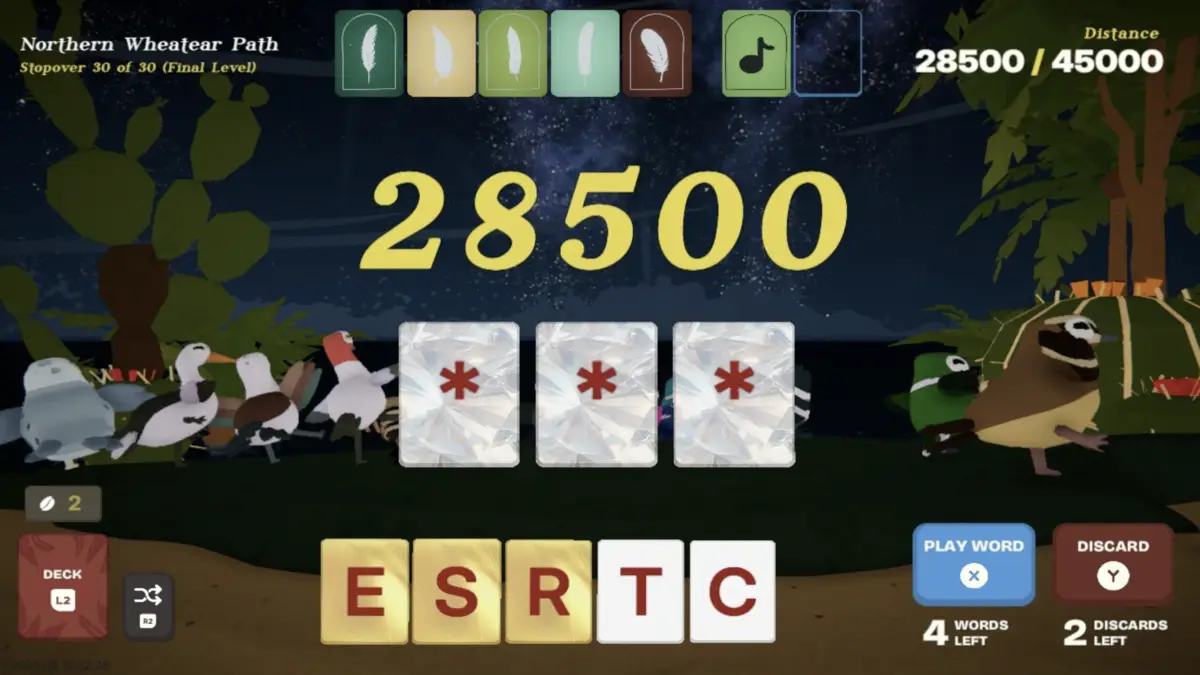
For me, Birdigo ended up being one of the most rewarding word games I’ve played—when everything comes together. Its mix of clever mechanics, charming bird presentation, and surprisingly deep strategy makes it stand out from your standard word puzzler. But that joy comes with a cost: steep difficulty spikes, heavy RNG, and even a few achievement bugs that make progress feel more frustrating than it should.
When your feathers, notes, and letter cards sync into the perfect build, the payoff is fantastic. Watching your flock soar past massive score thresholds is an incredible high. For instance, I’ll never forget the rush of finally hitting my personal best single word score of 28,500 after many hours of failed runs. But those moments don’t come easily, and for every thrilling migration, there’s another that collapses under bad luck or punishing score demands.
If you thrive on roguelike randomness and love experimenting with builds, Birdigo will absolutely hook you. But if you prefer steadier progression without the risk of wasted effort, it may test your patience more than your vocabulary.

